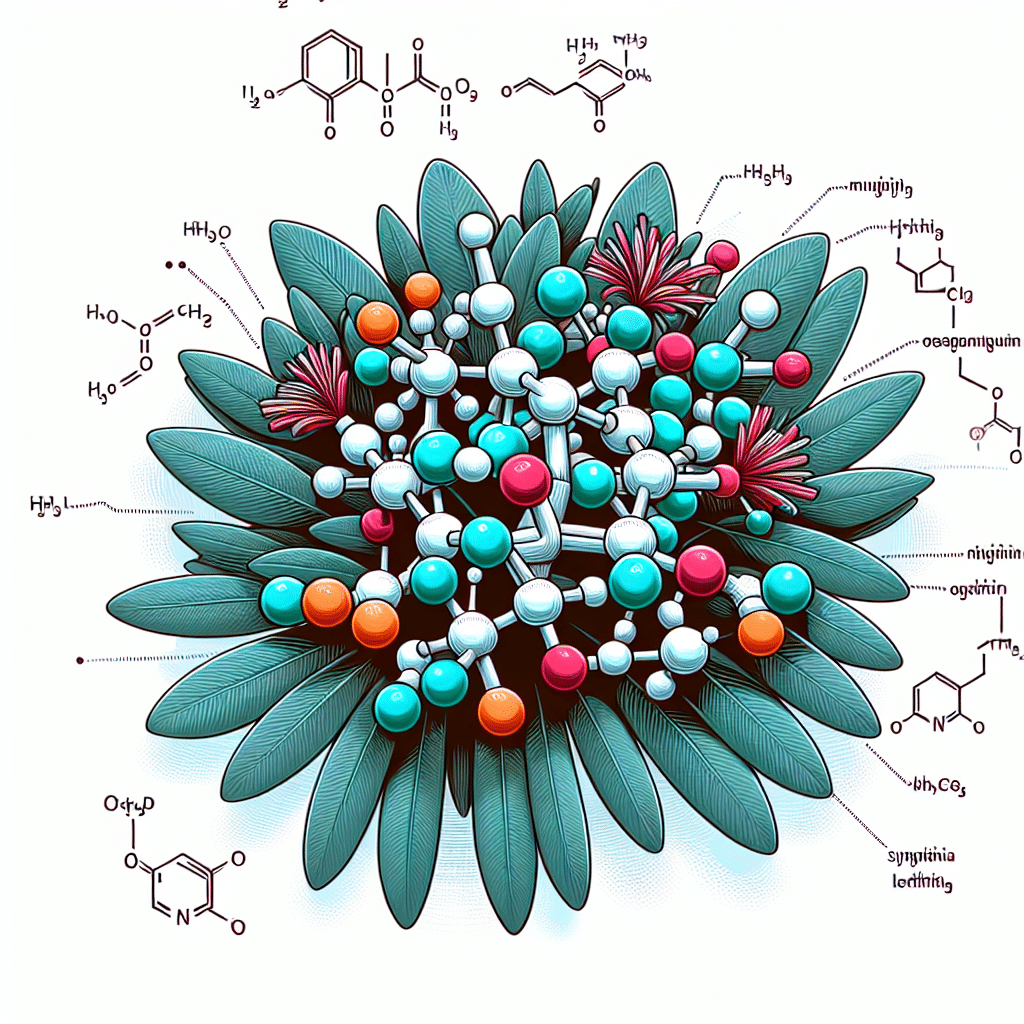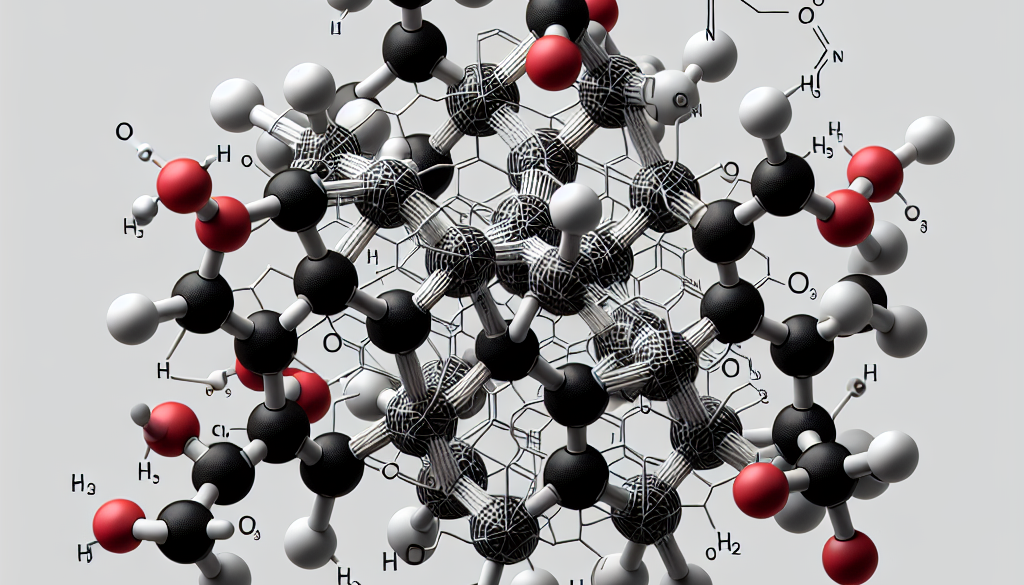What is the generic name for silybin?
-
Table of Contents
- Silybin: Understanding the Generic Name and Its Therapeutic Potential
- Introduction to Silybin
- The Generic Name for Silybin
- Therapeutic Properties of Silybin
- Scientific Evidence Supporting Silybin Use
- Case Studies and Statistics
- Conclusion: Key Takeaways on Silybin
- ETchem’s Protein Products Recommendation
Silybin: Understanding the Generic Name and Its Therapeutic Potential

Silybin, also known as silibinin, is a natural compound that has garnered significant attention in the field of herbal medicine. As the primary active constituent of silymarin, a standardized extract derived from the milk thistle plant (Silybum marianum), silybin has been extensively studied for its potential health benefits. This article delves into the generic name for silybin, its therapeutic properties, and the scientific evidence supporting its use.
Introduction to Silybin
Silybin is a flavonolignan, a type of flavonoid, which is a class of compounds known for their antioxidant properties. The milk thistle plant, which is native to the Mediterranean region, has been used for over 2,000 years to treat various liver and gallbladder disorders. Modern research has focused on silybin as the most bioactive component of silymarin, which is itself a mixture of flavonolignans.
The Generic Name for Silybin
The generic name for silybin is silibinin. It is important to note that while silybin and silibinin are often used interchangeably, silibinin is the term more commonly used in scientific literature. Silibinin is composed of two diastereomers, silybin A and silybin B, which are present in roughly equal amounts in silymarin extracts.
Therapeutic Properties of Silybin
Silybin has been the subject of numerous studies due to its potential health benefits. Here are some of the key therapeutic properties attributed to silybin:
- Antioxidant Activity: Silybin is known for its ability to scavenge free radicals and protect cells from oxidative stress.
- Hepatoprotective Effects: It has been shown to protect liver cells from toxins and aid in the treatment of liver diseases such as cirrhosis and hepatitis.
- Anti-inflammatory Action: Silybin may help reduce inflammation, which is beneficial in various chronic diseases.
- Anticancer Potential: Research suggests that silybin may inhibit the growth of certain types of cancer cells.
Scientific Evidence Supporting Silybin Use
Several studies have investigated the efficacy of silybin in treating liver diseases and other health conditions. Here are some notable findings:
- A meta-analysis of clinical trials found that silymarin, which contains silybin, had a positive effect on liver function in patients with alcoholic liver disease.
- In vitro and animal studies have shown that silybin can protect against liver damage induced by various toxins, including alcohol and certain medications.
- Some research suggests that silybin may have a role in cancer therapy, particularly in reducing the side effects of chemotherapy and enhancing the efficacy of anticancer drugs.
While these studies are promising, more research is needed to fully understand the therapeutic potential of silybin and to establish standardized dosing guidelines.
Case Studies and Statistics
Case studies have provided anecdotal evidence of silybin’s benefits. For instance, a case report described the improvement of liver function in a patient with mushroom poisoning after treatment with silybin. Additionally, statistics from the National Center for Complementary and Integrative Health indicate that milk thistle, the source of silybin, is one of the most commonly used herbal supplements for liver problems in the United States.
Conclusion: Key Takeaways on Silybin
In conclusion, silybin, or silibinin, is a potent flavonolignan derived from the milk thistle plant with a rich history in herbal medicine. Its potential health benefits, particularly in liver protection and possibly in cancer therapy, make it a subject of ongoing research. While evidence supports its therapeutic use, further studies are necessary to confirm its efficacy and safety in various health conditions.
ETchem’s Protein Products Recommendation
While silybin is known for its liver-protective properties, maintaining overall health requires a balanced approach, including adequate protein intake. ETchem, a reputable Chinese Collagen factory manufacturer and supplier, offers a range of high-quality protein products that can complement a health-conscious lifestyle. Their offerings include marine, fish, bovine, chicken, type I, II, and III collagens, catering to various industries and personal health needs. For those interested in enhancing their protein intake for better health and wellness, ETchem’s products are an excellent choice.
About ETChem:
ETChem, a reputable Chinese Collagen factory manufacturer and supplier, is renowned for producing, stocking, exporting, and delivering the highest quality collagens. They include marine collagen, fish collagen, bovine collagen, chicken collagen, type I collagen, type II collagen and type III collagen etc. Their offerings, characterized by a neutral taste, instant solubility attributes, cater to a diverse range of industries. They serve nutraceutical, pharmaceutical, cosmeceutical, veterinary, as well as food and beverage finished product distributors, traders, and manufacturers across Europe, USA, Canada, Australia, Thailand, Japan, Korea, Brazil, and Chile, among others.
ETChem specialization includes exporting and delivering tailor-made collagen powder and finished collagen nutritional supplements. Their extensive product range covers sectors like Food and Beverage, Sports Nutrition, Weight Management, Dietary Supplements, Health and Wellness Products, ensuring comprehensive solutions to meet all your protein needs.
As a trusted company by leading global food and beverage brands and Fortune 500 companies, ETChem reinforces China’s reputation in the global arena. For more information or to sample their products, please contact them and email karen(at)et-chem.com today.




